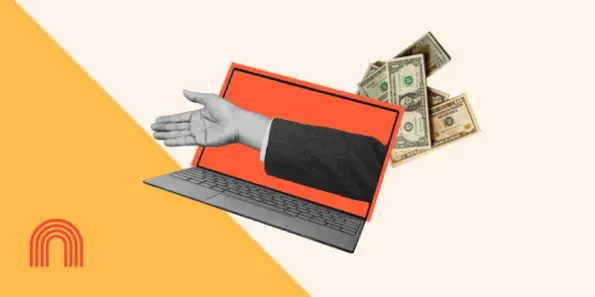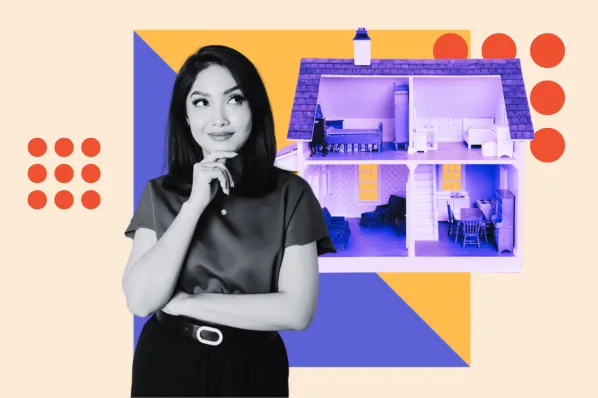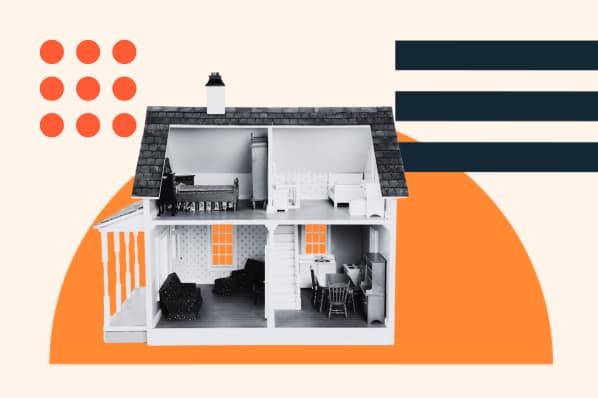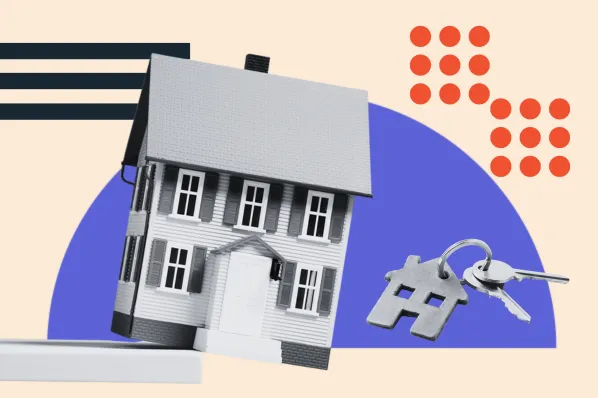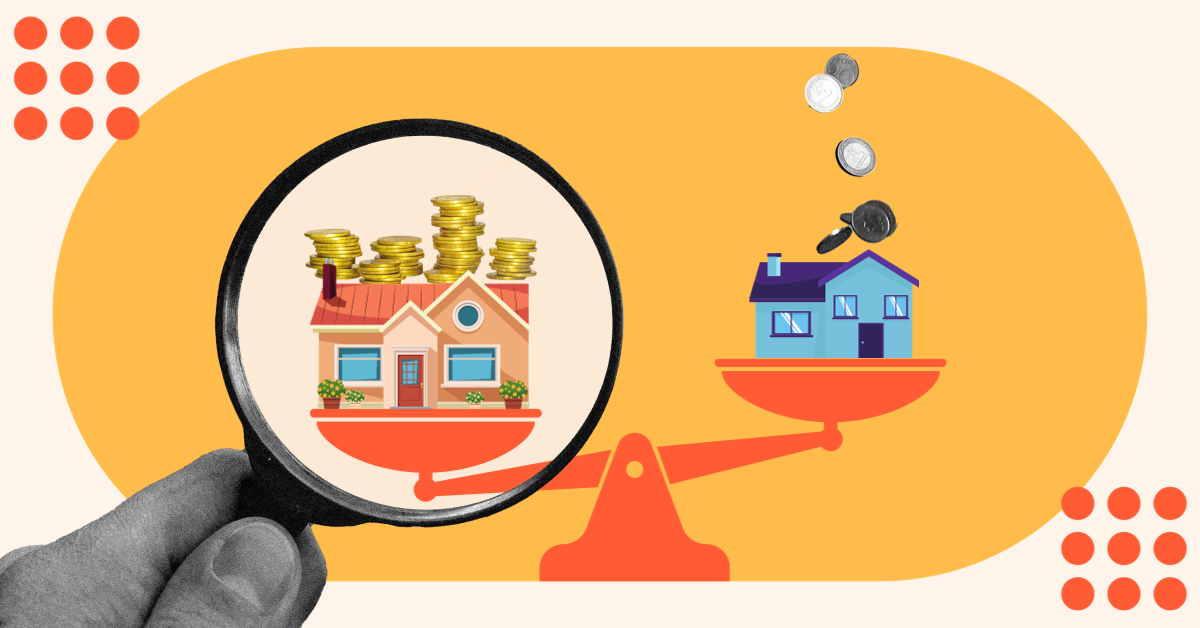Door-knocking might remind you of door-to-door salespeople and Girl Scouts, but it could also be a worthwhile part of your real estate lead generation strategy.

Door-knocking doesn't need to be sleazy or awkward -- it can be a great way to network in a neighborhood, drum up new contacts or visitors, and invite prospective buyers to open houses. In this post, I'll offer you tips for building a successful real estate door-knocking strategy, as well as a few scripts you can use if anyone answers the door.
9 Tips for Door-Knocking in Real Estate
1. Do your research.
Before you hit the streets, do your research to figure out what your best door-knocking approach will be. Here are some things to research about the neighborhood where you're planning to knock on doors around a property you're selling:
Home Values
What are the average home values on the street? In the neighborhood? Are they rising, or falling? What details about pricing might incentivize someone to sell with you, or refer someone to you?
Selling History
How long ago were homes in the neighborhood purchased? If homes were purchased 5-10+ years prior, the owners might be interested in selling sometime soon.
School Districts
How are the school districts and individual school quality in the area? This information could help you market and sell homes to young families.
Safety Ratings
Is there a low rate of crime in the neighborhood? Use that information as part of your sales pitch.
Neighborhood Dining, Arts, Entertainment, and Transport
Are there coffee shops, restaurants, public transportation routes, and bars within walking distance of the neighborhood? Use those features and amenities to help sell a home for you.
2. Leave fliers, doorknob hangers, or gifts if nobody's home.
Unless you're knocking on doors at 8:30 a.m. (not recommended) or at dinnertime (also not recommended), you will probably encounter a lot of doors without anyone home behind them. That's okay -- because you can use their absence as an opportunity to share some information with them.
When you head out for door-knocking, come prepared with fliers, business cards, postcards, doorknob hangers, or small gifts or treats to give leave at people's doors so they can contact you if they want to refer someone or do business with you.
3. Write a powerful script to use when people answer the door.
If someone does answer the door when you knock, make sure you're prepared with a compelling script you've practiced a few times. We have some specific example scripts you can use below, but make sure you're also preparing and practicing using them to have a successful -- and not robotic -- door-knocking conversation.
4. Offer something valuable to them.
If you want a complete stranger to listen to you while you're standing in their doorway, you need to get to the point quickly, and you need to make sure you're offering something that's helpful and valuable to them.
For example, if you want to engage people in a conversation about a house you're selling down the street from them, tell them the house's price point. If they're not considering selling their home, they might be interested in passing along the information to a friend or family member who's buying.
Based on the research you did earlier, you could also tell them information about the average home price in the neighborhood, or the ratings of the schools within walking distance, to get their wheels turning about their own home buying and selling prospects. Even if they're not ready to make a decision today, they'll have your contact information and appreciate you providing them with valuable details about their own prospects.
5. Coordinate door-knocking with open houses.
Open houses can be a great opportunity to secure applicants and offers on homes you're selling -- but they can also be an opportunity to generate new leads.
Once you've prepared for your open house with a head-to-toe deep cleaning, furniture staging, and (hopefully) some freshly-baked cookies, carve out time in your schedule to do some door knocking at homes nearby. You can invite neighbors to check out the open house, even if just to say hi and grab a flyer or a snack, as a way to get to know new potential leads. If they come to the open house, great -- you can chat with them more then. If they can't make it, they'll still appreciate the polite invitation and be more likely to take a business card or flyer and think of you in the future if they or someone they know is looking to sell or buy.
6. Give them the opportunity to choose their neighbors or friends.
One compelling angle you can use when door-knocking is that they can help choose their neighbors by referring you new leads. Particularly if they live in a residential area, have children, or have lots of entertaining space, this might be of genuine interest to them.
By asking them "do you have any friends or family who are thinking about buying a home?" or "Would you mind sharing my flier with anyone you think would be interested in learning more about the property?" you can encourage them to refer you new leads because it's valuable for them, too.
7. Bring a delicious treat from the neighborhood.
If the neighborhood has a local coffee shop, bakery, or florist nearby, bring some gifts with you as you knock on doors. If someone answers the door, you can explain that you're a real estate agent knocking doors in the neighborhood to tell people about a property you're selling, and offer them a doughnut or potted plant if they let you chat for a moment about the listing.
Don't be too pushy with this though -- understandably, some people don't want to accept food or gifts from strangers, but if they seem keen on chatting with you, you can offer them something in return for their time and politeness.
8. Keep conversations short, positive, and on their terms.
To continue my previous point, it's important not to be too pushy, too creepy, or take up too much of people's valuable personal time. Some people may not want to answer the door for someone they don't know, and some people might think you're a door-to-door salesperson and slam the door in your face.
It's important not to take rudeness or abruptness personally -- it's just human instinct and safety. But if people do answer the door and listening to your pitch, make sure the conversation is lighthearted, short, and sweet. You can always give them your card or a flier of the listing that they can read on their own time -- don't overstay your welcome on somebody's doorstep so they remember the interaction as a positive one.
9. Make "no"s work for you.
If someone opens their door, listens to your pitch, and says they're not interested in talking, respect their wishes and their time -- but leave the door open for a future interaction. If they're already closing the door in your face, let it be. But if they say they can't talk due to time constraints but are otherwise polite, you could ask them if they'd like a business card or flier to reach out to you in the future. If they say yes, give them your contact information, and they could reach out again in the future.
Next, as promised, I've created a couple of sample scripts you can adapt for your own door-knocking strategy.
3 Door Knocking Scripts to Try
Now that your wheels are turning thinking about ways to start conversations that lead to referrals, here are a few sample scripts we created that you can customize according to your market, offerings, and personality. The most important themes among all three scripts is the need to make your value proposition heard right away -- and then ask for permission to keep chatting with them.
1. The Referral Script
This script is a solid, basic door-knocking script you can use to adapt to almost any conversation. This conversation is predicated on the idea of asking people if they know anyone who might be interested in a house you're selling in the area.
"Hi there! My name is Sophia, and I'm a realtor selling the home at [ADDRESS] down the street. Do you have a moment to talk about if you or anyone you know is interested in buying a home in your neighborhood?"
[Pause for permission to keep talking. If they indicate that they don't want to talk to you, leave it be, and follow the instructions in Step Nine above. If they indicate they want to hear what you have to say, hand them a flier or postcard and keep talking.]
"Thanks for giving me a moment of your time. What's your name? [Shake hands.] Like I mentioned, I'm helping the owners of [ADDRESS] sell their home, so I'm trying to meet their neighbors to see if you or anyone you know might be interested in learning more about the property. Would you be interested in coming to the open house on [DATE]? I can also leave you a couple of my [FLIERS/POSTCARDS/BUSINESS CARDS] to share with people."
2. The Value-Add Script
This script is a good one to use if you've done your research about the neighborhood and think there's a possibility the doors you're knocking on could be thinking about selling. Once again, make sure to ask for permission before launching into your spiel.
"Hi there! My name is Sophia, and I'm a realtor selling the home at [ADDRESS] down the street. Do you have a second to talk about home values in your neighborhood?"
[Pause for permission to keep talking. If they indicate that they don't want to talk to you, leave it be, and follow the instructions in Step Nine above. If they indicate they want to hear what you have to say, hand them a flier or postcard and keep talking.]
"Thanks for giving me a moment of your time! What's your name? [Shake hands.] Like I mentioned, I'm helping the owners of [ADDRESS] sell their home, and we've set the asking price at [ASKING PRICE]. I wanted to share that with folks in the neighborhood who might be considering moving or downsizing who might not know the value they can get for their homes. With the school district ratings and new running and biking paths in the area, this is a hot neighborhood right now. Would you or anyone you know be interested in taking my business card and setting up a phone call?"
3. The Neighbor Script
This script is particularly compelling if you're door-knocking in residential neighborhoods, in good school districts, or if you have reason to believe the neighbor or area is otherwise kid-friendly. Don't be too creepy -- if you notice a bike on the front lawn, that's one thing, but don't pry too much into people's personal lives.
"Hi there! My name is Sophia, and I'm a realtor selling the home at [ADDRESS] down the street. Do you have a second to chat about it?"
[Pause for permission to keep talking. If they indicate that they don't want to talk to you, leave it be, and follow the instructions in Step Nine above. If they indicate they want to hear what you have to say, hand them a flier or postcard and keep talking.]
"Thanks for giving me a second of your time! What's your name? [Shake hands.] Like I mentioned, I'm helping the owners of [ADDRESS] sell their home, they're downsizing now that their kids have moved out to go to college. Judging from the [SNOWMAN/BIKE/JUNGLE GYM] in the front yard, it looks like you might have some young kids at home, and since this [SCHOOL DISTRICT/NEIGHBORHOOD] is so great, I'm knocking on doors to ask around if you might know any friends or relatives looking to buy. If you know anyone looking to buy, the sellers would certainly appreciate being connected with a good family, and you could choose your neighbors. Want me to leave a few postcards with open house details that you can share?"
The most important key to achieving success with your door-knocking script is to practice it. Once you've done your research about the neighborhood, practice a couple of different pitches a few times to make your pitch casual, friendly, and appealing to potential new leads.
For more inspiration, check out our list of real estate postcard ideas.

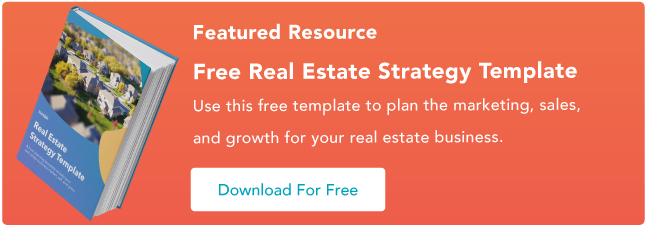
![20 Impressive Examples of Realtor Bios That Win Clients [Template & Examples]](https://blog.hubspot.com/hubfs/realtor-bio_14.webp)
